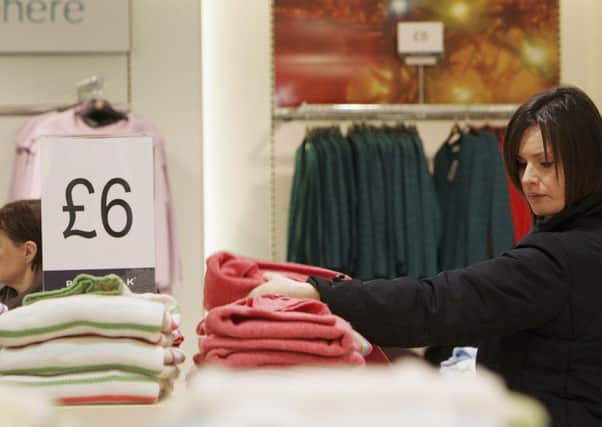Comment: All not sweet at ABF despite Primark news


Shares in AB Foods have surged nearly 60 per cent over the past year, but sagged 5 per cent as yesterday’s trading update made clear the challenges faced by the sugar business will hit earnings for some time yet.
Even continuing robust sales growth at Primark could not allay the City’s fears that sugar will remain a drag on the group. The essential problem is that world sugar prices remain stubbornly low at an average of just 17 cents a pound, a sizeable discount to the global average cost of production.
Advertisement
Hide AdAdvertisement
Hide AdEuropean sugar prices have also been depressed by producers jockeying for position in new markets ahead of the removal of quotas in 2017.
As a result, City analysts believe AB Foods’ sugar division will have seen profits more than halve to about £200 million in its 2013-14 trading year, and slump to about £140m in 2014-15. We are clearly not talking about changes at the margins here. Further pressure for the group this year has come from the strength of sterling, which has seen earnings on translation take a £50m hit. This downside of the strong pound has become somewhat standard-issue for many British companies over the past year, with Glasgow patent attorney Murgitroyd yesterday also blaming it for a squeeze on profits.
Primark’s stellar performance in recent years, both organically and via the regular opening of new selling space around the globe, has often managed to disguise the headwinds for the sugar business.
And AB Foods said Primark’s outperformance has continued in the latest year, with sales still ahead 16 per cent despite the adverse foreign exchange rates. Even more reassuring, the company said that this sales jump was not at the expense of profit margins, which are likely to be slightly higher than last year. AB Foods has reason yet again to regard Primark as its ace in the hole.
And, while Marks & Spencer has recorded 12 consecutive quarters of declining clothes sales, at least it can take some consolation that it is not involved in the sugar industry.
RBS puts Citizens on the flotation slipway
Royal Bank of Scotland’s launch of the first stage of the flotation of its US retail arm, Citizens Financial, is in line with what analysts were expecting in terms of timing and pricing.
Of course, the City is not directly affected, because the float of Citizens will be on Wall Street. But it gives remaining British investors in RBS – not least the taxpayer – confidence that the gradual “simplification” of the bank, partly through reducing its international aspirations, continues.
Raising more than £2 billion from the initial public offering will help to bolster the Edinburgh-based parent group’s capital buffers, which are already unrecognisable from the threadbare core tier one capital ratio of just 4 per cent at the time of the 2008 financial market crash.
Advertisement
Hide AdAdvertisement
Hide AdCitizens did not do anything specifically wrong, and for many years made a positive earnings contribution. But, like a host of the £2 trillion that was on RBS’s groaning balance sheet when the balloon went up, the business has, probably correctly, been deemed a management diversion too far.